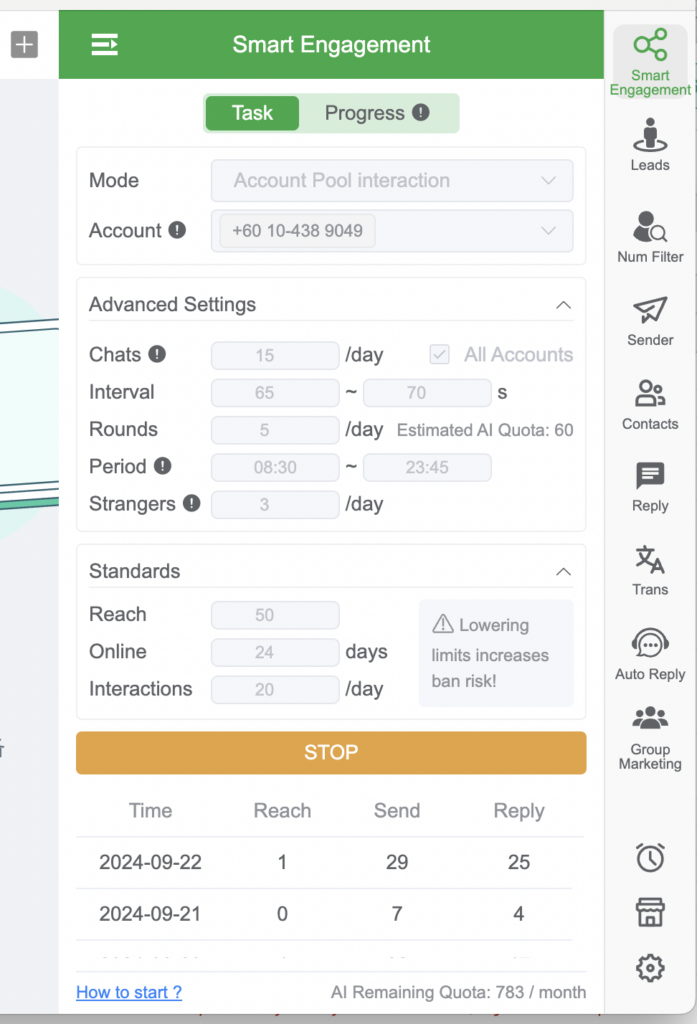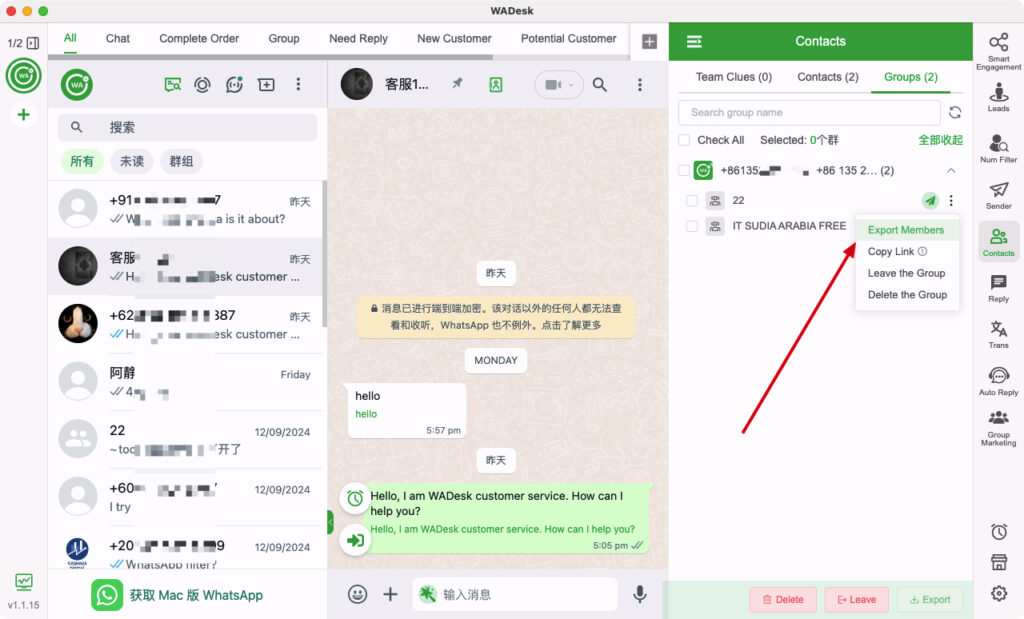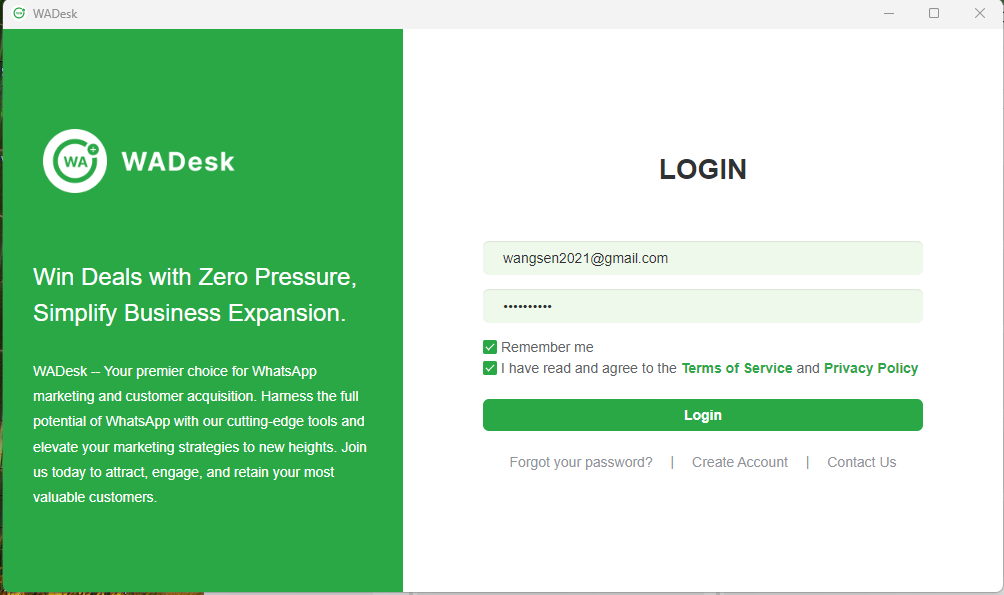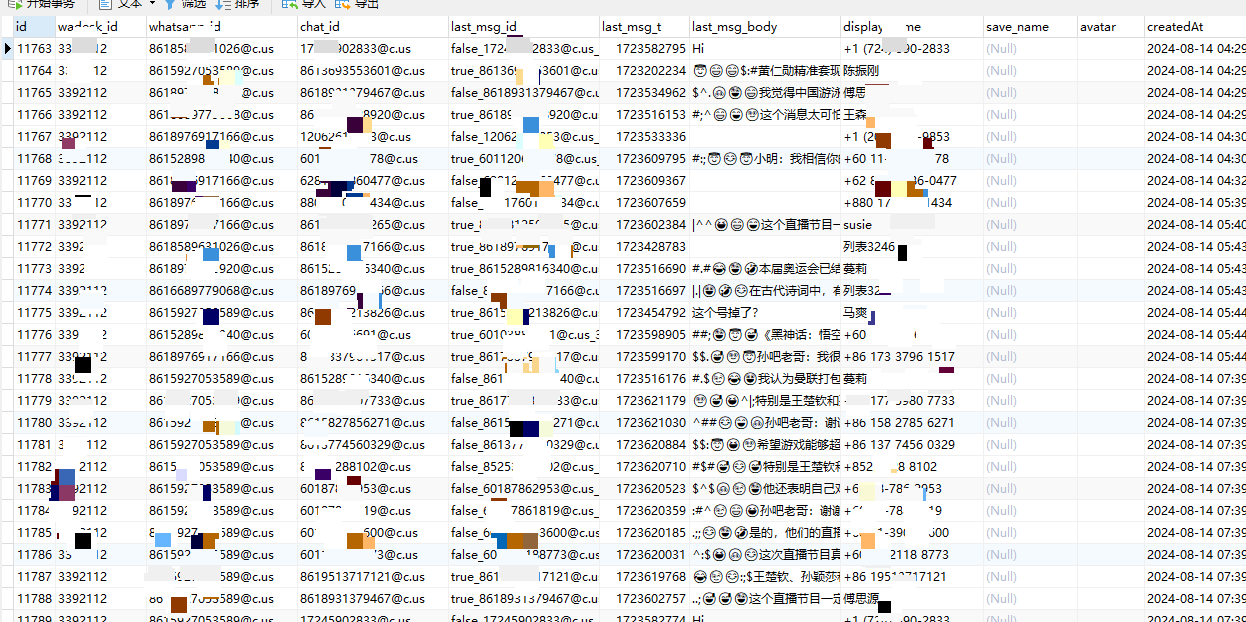WhatsApp has become an essential global platform for communication and marketing. However, frequent account bans can be a major headache for many marketers and business owners. To help users better protect and nurture their WhatsApp accounts, we've compiled a detailed guide on account nurturing techniques to reduce the risk of bans, along with solutions for recovering from an account ban.
First Ten Days of Account Nurturing
1. Minimize Mass Messaging
During the first ten days of using a new account, avoid mass messaging. Instead, engage in gradual, organic conversations with contacts from your phone's address book. Chat with about five contacts each day to reduce the chances of being flagged as a spam account by WhatsApp's system.
2. Engage in Two-Way Conversations
Use another number (such as a friend's WhatsApp account) to engage in two-way conversations with your new account and mutually add each other to your contact lists. This type of interaction helps WhatsApp recognize the account as being used in normal communication, rather than for mass marketing.
3. Control the Number of Messages Sent
For older accounts, it's advisable to limit the daily number of messages to under 50. For new accounts, gradually increase the number of contacts, starting with five per day during the first ten days. Ensure the total number of people you contact at one time doesn't exceed 50 to avoid triggering WhatsApp's account ban mechanisms.
4. Stabilize Account Information
Once you've registered a new account, set up your profile name and picture as early as possible and avoid making frequent changes during the first ten days. Changing these too often can increase the chances of your account being flagged as suspicious.
5. Avoid Replying to Old Messages
If your new number previously belonged to another user and contains old messages, refrain from replying to them. Interacting with these old messages can lead to your account being flagged and banned by WhatsApp.
6. Increase Interaction
Every day, interact with 3-4 contacts saved in your address book by exchanging at least 20 purely text-based messages. Avoid sending links and try making voice calls that last at least five minutes. If possible, video calls can be even more effective. This kind of activity boosts the credibility of your account and helps WhatsApp recognize it as legitimate.
7. Avoid Creating Groups
New accounts should avoid creating groups in the first ten days. Group creation can be considered unusual behavior by WhatsApp and may increase the risk of your account being banned.
8. Continue the Above Practices
Maintain these daily interactions for at least ten days to establish a healthy level of account activity. This helps WhatsApp recognize your account as one used for regular communication, building a trustworthy profile over time.
Post Ten Days: Nurturing Recommendations
1. Resume Normal Messaging
After the first ten days of careful nurturing, you can gradually resume normal messaging activity. However, avoid mass messaging even at this stage. When manually sending messages, leave at least three minutes between each one, and keep the total number of messages under 50 per day.
2. Continue Nurturing
Maintain ongoing conversations with your existing contacts and gradually increase interactions with new ones. Ensure your activities remain natural and avoid adding a large number of new contacts or sending too many messages in a short period. This will ensure your account usage remains within normal patterns.
Solutions for Account Bans
Even with these precautions, your WhatsApp account could still be mistakenly banned or flagged. Here are common ways to recover from an account ban:
1. Appeal the Ban
Open WhatsApp, enter your phone number, and click the "Support" button. Follow the prompts to provide detailed information regarding the ban and submit your appeal. WhatsApp typically reviews these cases within a few hours or days.
2. Contact Customer Support
If the appeal doesn’t resolve the issue, you can contact WhatsApp’s customer support via their official help center. Provide them with detailed account information and describe the ban situation to seek further assistance from a support representative.
3. Change Your Number
If the ban cannot be lifted, you may need to register a new WhatsApp account using a different number. Make sure to follow the above nurturing strategies for the new account to avoid future bans.
4. Preventive Measures
To prevent bans in the future, it’s essential to strictly adhere to WhatsApp’s terms of service. Avoid mass messaging, joining too many groups, or using third-party plugins. Regularly update WhatsApp to the latest version to ensure you benefit from the latest security features.
WADesk: Automated WhatsApp Account Nurturing Tool
As WhatsApp account management grows more complex, the time and effort required for manual nurturing can become overwhelming. Addressing this challenge, WADesk offers a cutting-edge automated nurturing tool that helps users efficiently manage and safeguard their WhatsApp accounts.

WADesk’s nurturing functionality is fully based on the best practices outlined above. It automates daily maintenance tasks, such as two-way interactions with contacts, sending text messages, controlling message frequency, handling mass messaging, and automatically responding to messages. WADesk provides users with an all-in-one solution, saving significant time while ensuring that the account nurturing process is both efficient and compliant, greatly reducing the risk of bans due to improper handling.
WADesk is more than just a WhatsApp management tool—it’s your digital communication partner, empowering you to manage multiple accounts effortlessly while ensuring their long-term security and stability. With WADesk, you can focus on growing your core business without worrying about account bans. Interested? Contact our support team to try it out!





